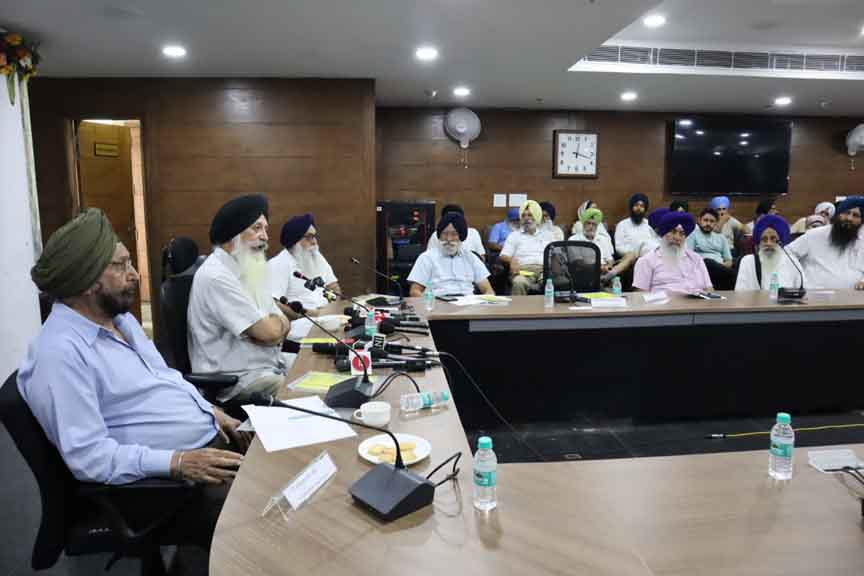Misl Satluj’s Vision for Punjab: Autonomy, Prosperity, and Cultural Preservation Unveiled at Intellectuals and Activists Meet
2 min read
Chandigarh, July 25, 2024: In a landmark event that could redefine Punjab’s future, Misl Satluj, a leading socio-political organization, has revealed a transformative proposal aimed at steering the state towards autonomy, prosperity, and cultural preservation. Unveiled at a significant meeting at Kisan Bhawan here, attended by intellectuals, activists, and political luminaries, the proposal champions a renewed relationship with the central government, special economic status, and job reservations for Punjabis under Article 371 of the Indian Constitution.
The gathering, featuring influential voices such as Gurdarshan Singh Dhillon, Gurtej Singh, Gurpreet Singh, and Gurbir Singh Machaki, ignited spirited debate and considerable interest in innovative solutions for Punjab’s unique challenges. The meeting was kicked off by S. Gurbir Singh Machaki, who shared the kind of leadership Gurmat and Gurbani emphasize and how today we have been led astray. Amrit Kaur Maloya daughter of Beant Singh and Mandheer Singh were also present.
Ajaypal Singh Brar, President of Misl Satluj, underscored the organization’s dedication to grassroots empowerment and collective decision-making. He emphasized the importance of ensuring that every Punjabi’s voice contributes to the state’s destiny.
Political analyst Malwinder Singh Mali commended the initiative’s focus on issue-based politics, transcending traditional party lines to prioritize Punjab’s welfare and suggested that seek federalism for all states not for Punjab only. The proposal has drawn significant backing from various quarters, with retired senior Indian revenue officer Baldip Singh Sandhu highlighting the potential of special category status to reduce Punjab’s debt and attract crucial investments. Additionally, SGPC member Bharpoor Singh Dhandra endorsed the Nehru-Tara Singh pact’s implementation to safeguard Sikh religious affairs.
The conference saw enthusiastic participation from notable figures, including Gurpreet Singh of the Sikh Studies Institute, Parampal Singh Sabhra of the Sikh Alliance, Paramjit Singh Gazi of Sikh Siyasat, Khushal Singh, Secretary of Kendriya Singh Sabha, and Yadwinder Singh Yadu of SYFY. This widespread engagement underscores the broad-based support for Misl Satluj’s visionary proposal.
Despite questions about its feasibility, the proposal has invigorated discussions about Punjab’s political future. As the state faces a multitude of challenges, Misl Satluj’s bold vision promises to reshape the conversation and inspire innovative governance approaches prioritizing the well-being of Punjab and its people.




